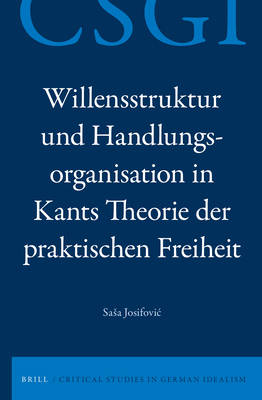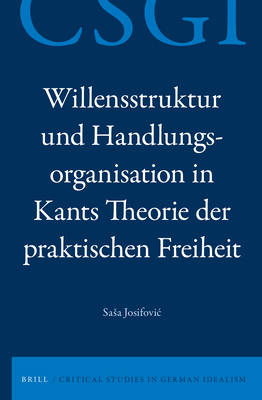
- Afhalen na 1 uur in een winkel met voorraad
- Gratis thuislevering in België vanaf € 30
- Ruim aanbod met 7 miljoen producten
- Afhalen na 1 uur in een winkel met voorraad
- Gratis thuislevering in België vanaf € 30
- Ruim aanbod met 7 miljoen producten
Zoeken
Willensstruktur Und Handlungsorganisation In Kants Theorie der Praktischen Freiheit
Sasa Josifovic
€ 286,95
+ 573 punten
Omschrijving
Kant's theory of practical freedom represents a masterpiece of the philosophical inquiry into self-constitution, self-government, and volitional self-determination. It includes a sophisticated theory of action intrinsically determined by a specific concept of control over the processes that determine the contents of volition as well as those which facilitate the realization of ends. The most distinctive feature of this theory of action consists of the specific function of autonomously generated principles which, according to Kant, facilitate control over the process of volitional self-determination and thus constitute agency. Willensstruktur und Handlungsorganisation in Kants Theorie der praktischen Freiheit provides a detailed reconstruction of Kant's theory of practical freedom and action as rationally guided volitional self-determination in his first and second "Critique".
Specificaties
Betrokkenen
- Auteur(s):
- Uitgeverij:
Inhoud
- Aantal bladzijden:
- 414
- Taal:
- Duits
- Reeks:
- Reeksnummer:
- nr. 11
Eigenschappen
- Productcode (EAN):
- 9789004271715
- Verschijningsdatum:
- 1/05/2014
- Uitvoering:
- Hardcover
- Formaat:
- Genaaid
- Afmetingen:
- 157 mm x 239 mm
- Gewicht:
- 748 g

Alleen bij Standaard Boekhandel
+ 573 punten op je klantenkaart van Standaard Boekhandel
Beoordelingen
We publiceren alleen reviews die voldoen aan de voorwaarden voor reviews. Bekijk onze voorwaarden voor reviews.








